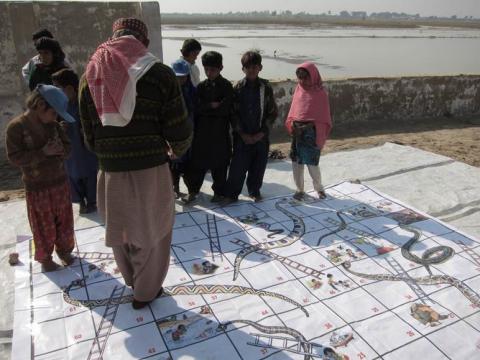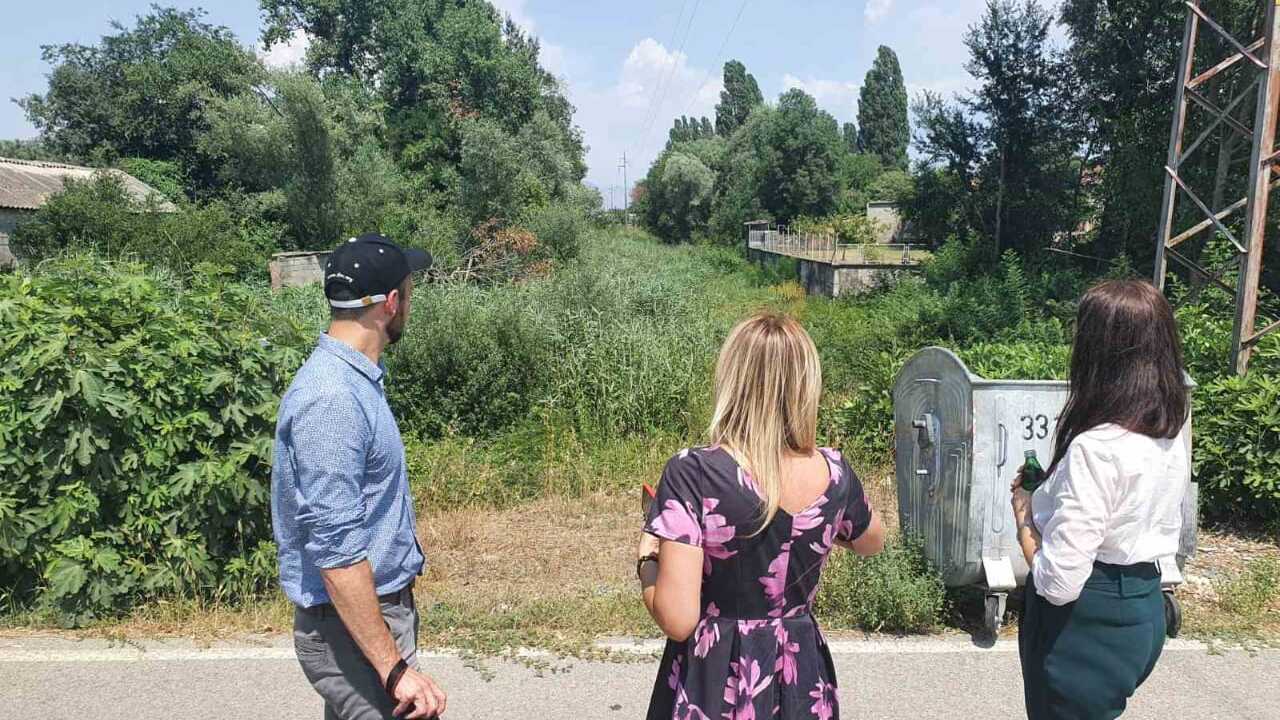Connected: How Albania’s new Emergency Operation Centre enables effective disaster risk management

As auxiliaries to national governments and as trusted partners, Red Cross National Societies around the world are involved in many disaster management initiatives. The Albanian Red Cross is actively pursuing the opportunities emerging from this position to connect our flood resilience work to other initiatives for wider reach and bigger impact. The Albanian Red Cross’ newly opened Emergency Operations Centre and the Next-Generation Incident Command System provide an opportunity for exactly that.
The complexity of flood resilience requires collaboration
As a member of the Zurich Flood Resilience Alliance, we are supporting the flood-prone communities Bërdica, Ajasëm, Dajç and Obot, as well as neighbouring communities located around Shkodra Lake, on their resilience journey.
With our work, we accompany, enable, and connect communities to address gaps in flood resilience identified through the Flood Resilience Measurement for Communities (FRMC). For example, we are establishing community response teams, work to improve early warning systems, and raise awareness of floods and other hazards as well as risks from climate change.
To complement our own expertise and resources, we connect to other initiatives and stakeholders and advocate for improved policies and increased investment in resilience building. This opens opportunities to build the social capital of communities by linking them directly with key stakeholders in the disaster resilience space.
Albanian Red Cross inaugurates new Emergency Operations Centre
The Emergency Operations Centre (EOC), which the Albanian Red Cross established together with the IFRC, will be an important resource for data and information management as well as informed decision-making and coordination of disaster risk reduction, community resilience building, and emergency response activities.
In June 2021, U.S. Ambassador Yuri Kim and USAID Albania visited the headquarters of the Albanian Red Cross to inaugurate the new EOC together with the President and the Secretary General of the Albanian Red Cross.
The EOC will be connected to the Next-Generation Incident Command System (NICS), a web-based communication platform for disaster management coordination developed by NATO and the Massachusetts Institute of Technology (MIT).
“One of the fundamental problems of any kind of disaster (…) is that many organisations come together that normally don’t work together, so they don’t always know how to communicate or collaborate. We developed a software platform where everybody can join together and develop ways to share information that they normally don’t know how to share: maps, videos, pictures, all in real time.”
Gregory Hogan, Programme Manager, MIT Lincoln Laboratory, United States

Through NICS, all branches of the Albanian Red Cross, relevant government structures, and other disaster management actors will be able to better coordinate and exchange information before, during, and after disaster events.
The EOC and NICS don’t just connect stakeholders within Albania but also in neighbouring countries faced with similar disaster risk. Particularly in the case of floods, coordination with the government and the Red Cross in Montenegro is critical as the two countries share flood plains and rivers. Many hazards that occur in one country will affect the other.
Connecting our flood resilience work to the Emergency Operations Centre and Next-Generation Incident Command System
The communities we work with are located only a few kilometres from the Montenegrin border in a river basin shared by both countries. An effective early warning system that enables community members to take protective early actions will thus need to consider information from across the border quickly. Enabling fast and uncomplicated sharing of information, the EOC and NICS will be an important pillar for coordinated early action and community resilience in this region.
The community response teams that we are establishing, training, and equipping will also be connected to NICS. The communities we work with, in the most flood prone area of Albania, will benefit both from our improved capacities at the Red Cross and themselves be connected to relevant stakeholders so they can share and receive key information directly.
During the EOC opening ceremony, we simulated a flood emergency in two communities which we work with. During the simulation, we shared information and insights gained from the FRMC as well as some of our planned and ongoing interventions in the NICS system. This way other actors can easily access and consider these in their own planning and activities.
-

-

Flood Resilience Project staff presenting a flood emergency scenario for the communities we work with around Shkodra. Photo by Albanian Red Cross.
Promoting and scaling our resilience approach through NICS
Through our work within the Zurich Flood Resilience Alliance we are enhancing the capacity and understanding of flood resilience building at the Albanian Red Cross. Staff and volunteers involved in the project have developed a holistic and systematic understanding of how to support communities to prepare for, respond to, and recover from floods. We will share information and guidance based on our learnings and offer our capacities and services to other actors in Albania and the region through NICS. This is part of our scaling strategy to reach more flood prone communities with our flood resilience work and expertise.

Connected we can reach more people and make a bigger difference
Looking ahead, our ambition is to leverage the EOC and NICS to share more data and information, to better understand disaster risk in all its dimensions of vulnerability, capacity, exposure of persons and assets, hazard characteristics, and the environment. Thereby and together with our partners, we will strengthen disaster risk governance to manage disaster risk for prevention, mitigation, preparedness, response, and recovery.

This blog was written by Jonathan Ulrich, Francisco Ianni, Saidi Bushaj and Fatos Xhengo and originally published on the Flood Resilience Portal of the Zurich Flood Resilience Alliance. Please find the original story here. Find out more about the work of the Albanian Red Cross in this programme brief and/or on our Where we work page.



